In the realm of compact SUVs, the competition is heating up with the arrival of innovative models like the 2024 Kia Sportage and the Lexus LBX. Both vehicles offer a blend of sleek design, technological advancements, and driving comfort, yet they each appeal to distinct preferences and lifestyles. This comparison will delve into their technical aspects, engine performance, and unique innovations, providing insight essential for potential buyers.
Kia Sportage vs Lexus LBX - Differences and prices compared
Compare performance (239 HP vs 136 HP), boot space and price (30200 £ vs 28300 £ ) at a glance. Find out which car is the better choice for you – Kia Sportage or Lexus LBX?
Design and Dimensions
The 2024 Kia Sportage boasts a robust and athletic stance, measuring 4515 mm in length, 1865 mm in width, and 1650 mm in height. It offers a spacious trunk capacity of up to 587 liters, making it an excellent choice for families or outdoor enthusiasts. The SUV accommodates five passengers comfortably, ensuring ample room for everyone.
On the other hand, the Lexus LBX, being slightly more compact at 4190 mm in length and 1825 mm in width, presents an elegant and understated profile. Despite its smaller trunk capacity of 332 liters, it maintains a sophisticated appeal and features high-quality materials throughout. The interior comfortably seats four, making it more suited for city-dwellers or couples.
Performance and Powertrains
The Kia Sportage offers a diverse lineup of engine options, including Diesel MHEV, Petrol MHEV, Full Hybrid, Petrol, and Plugin Hybrid configurations. With power outputs ranging from 136 HP to an impressive 252 HP, drivers can choose according to their performance preferences. Acceleration varies significantly, with models capable of hitting 0-100 km/h in as little as 8.3 seconds. Additionally, the Sportage achieves a top speed of up to 194 km/h, catering to those who crave excitement on the road.
In contrast, the Lexus LBX employs a single Full Hybrid engine producing 136 HP. It features a Continuously Variable Transmission (CVT) that enhances fuel efficiency. The LBX accelerates from 0-100 km/h in a commendable 9.2 seconds, reaching a maximum speed of 170 km/h. With impressive consumption figures ranging from 4.5 to 4.8 L/100km and CO2 emissions as low as 102 g/km, this SUV is an eco-conscious choice.
Technological Innovations
Both models focus heavily on integrating advanced technology into their design. The Kia Sportage is equipped with a wide array of infotainment options, including a large touchscreen interface, smartphone integration, and a robust sound system. Innovative safety features like adaptive cruise control, lane-keeping assist, and various driver assistance systems enhance the overall driving experience.
The Lexus LBX shines with its commitment to luxury and user-friendly technology. With a focus on quality in-car materials and finishes, it includes features such as a dual-zone climate control system, advanced infotainment systems, and a suite of safety technologies that include lane departure warning and automatic emergency braking. The subtle luxury of the LBX distinguishes it in a market that often prioritizes performance.
Fuel Efficiency and Environmental Impact
Fuel efficiency is where these two SUVs showcase their differences. The Kia Sportage, depending on the engine choice and drive type, achieves an average consumption between 5 L/100km to 7.2 L/100km. Its hybrid versions deliver exceptional mileage, appealing to eco-conscious drivers. Conversely, the Lexus LBX excels in this category, with its hybrid powertrain recording an impressive fuel consumption of just 4.5 to 4.8 L/100km, alongside lower CO2 emissions. This makes it an excellent choice for those who are environmentally conscious without compromising on style or functionality.
Conclusion
In summary, both the 2024 Kia Sportage and the Lexus LBX cater to different markets and preferences. The Sportage offers a wide range of powertrains, spaciousness, and performance excitement, making it ideal for larger families or those looking for versatility. Meanwhile, the Lexus LBX impresses with its luxury, compact design, and outstanding fuel efficiency, appealing more to urban users seeking a blend of comfort and eco-friendliness.
Ultimately, the choice between these two SUVs will depend on personal priorities—be it performance, space, environmental impact, or luxury amenities. Each vehicle stands as a testament to the evolving landscape of compact SUVs, steering buyers toward their ideal match.
Here’s where it gets real: The technical differences in detail
Costs and Efficiency:
Price and efficiency are key factors when choosing a car – and this is often where the real differences emerge.
Lexus LBX has a minimal advantage in terms of price – it starts at 28300 £ , while the Kia Sportage costs 30200 £ . That’s a price difference of around 1885 £.
Fuel consumption also shows a difference: Lexus LBX manages with 4.50 L and is therefore to a small extent more efficient than the Kia Sportage with 5 L. The difference is about 0.50 L per 100 km.
Engine and Performance:
Power, torque and acceleration say a lot about how a car feels on the road. This is where you see which model delivers more driving dynamics.
When it comes to engine power, the Kia Sportage has a convincingly edge – offering 239 HP compared to 136 HP. That’s roughly 103 HP more horsepower.
In acceleration from 0 to 100 km/h, the Kia Sportage is somewhat quicker – completing the sprint in 7.90 s, while the Lexus LBX takes 9.20 s. That’s about 1.30 s faster.
In terms of top speed, the Kia Sportage performs slightly better – reaching 203 km/h, while the Lexus LBX tops out at 170 km/h. The difference is around 33 km/h.
There’s also a difference in torque: Kia Sportage pulls significantly stronger with 320 Nm compared to 185 Nm. That’s about 135 Nm difference.
Space and Everyday Use:
Whether family car or daily driver – which one offers more room, flexibility and comfort?
Both vehicles offer seating for 5 people.
In curb weight, Lexus LBX is distinct lighter – 1280 kg compared to 1552 kg. The difference is around 272 kg.
In terms of boot space, the Kia Sportage offers significantly more room – 587 L compared to 332 L. That’s a difference of about 255 L.
In maximum load capacity, the Kia Sportage performs decisively better – up to 1776 L, which is about 782 L more than the Lexus LBX.
When it comes to payload, Kia Sportage to a small extent takes the win – 580 kg compared to 475 kg. That’s a difference of about 105 kg.
Who wins the race in the data check?
The Kia Sportage sits well ahead of its rival in the objective data comparison.
This result only shows which model scores more points on paper – not which of the two cars feels right for you.
Costs and Consumption
View detailed analysis
Engine and Performance
View detailed analysis
Dimensions and Body
View detailed analysis
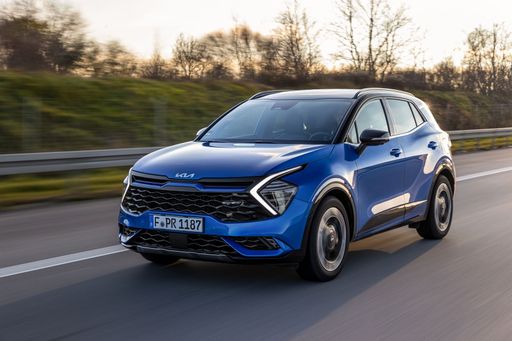
Kia Sportage
Kia Sportage
The Kia Sportage proves you don't have to choose between style and sensible family motoring, wrapping modern, confident looks around a roomy, well-equipped cabin. It's an easy car to live with — comfortable on daily runs, pleasantly engaging when you want a bit of fun, and kind to your wallet so you can keep smiling at the fuel pump.
details
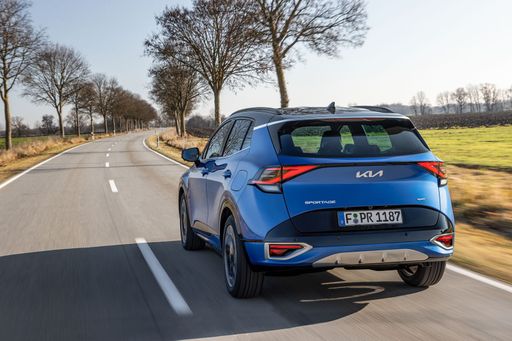


Lexus LBX
The Lexus LBX wraps premium touches and a surprisingly spacious cabin into a compact crossover that’s perfectly at home in town or heading out on longer drives. It wears the badge with quiet confidence, serving up a refined ride and clever packaging for buyers who want Lexus polish without shouting for attention.
details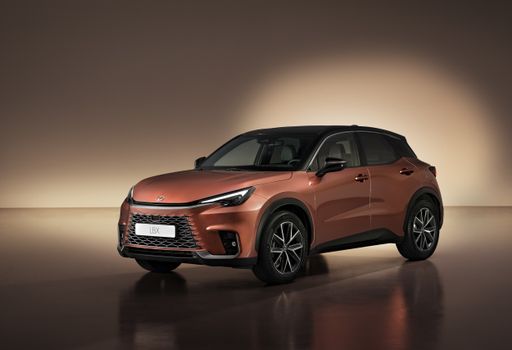
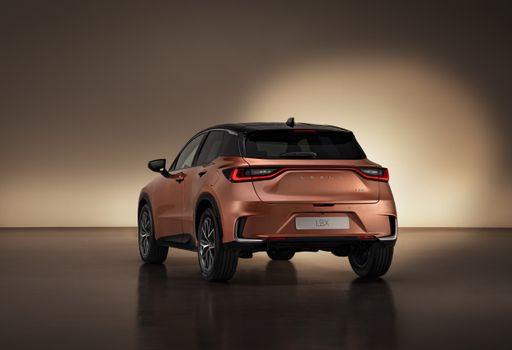
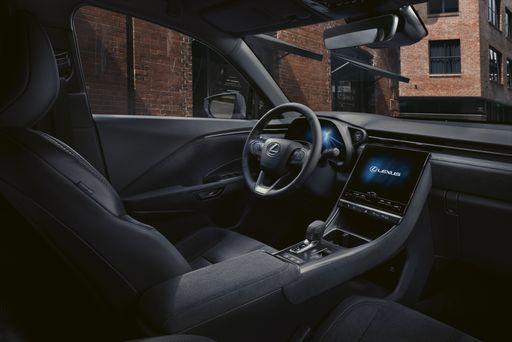
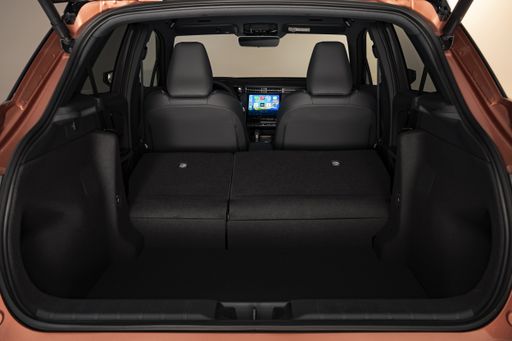
Costs and Consumption |
|
|---|---|
|
Price
30200 - 43900 £
|
Price
28300 - 40000 £
|
|
Consumption L/100km
5 - 7.9 L
|
Consumption L/100km
4.5 - 4.8 L
|
|
Consumption kWh/100km
-
|
Consumption kWh/100km
-
|
|
Electric Range
-
|
Electric Range
-
|
|
Battery Capacity
-
|
Battery Capacity
-
|
|
co2
132 - 180 g/km
|
co2
102 - 110 g/km
|
|
Fuel tank capacity
52 - 54 L
|
Fuel tank capacity
36 L
|
Dimensions and Body |
|
|---|---|
|
Body Type
SUV
|
Body Type
SUV
|
|
Seats
5
|
Seats
5
|
|
Doors
5
|
Doors
5
|
|
Curb weight
1552 - 1733 kg
|
Curb weight
1280 - 1365 kg
|
|
Trunk capacity
526 - 587 L
|
Trunk capacity
255 - 332 L
|
|
Length
4540 mm
|
Length
4190 mm
|
|
Width
1865 mm
|
Width
1825 mm
|
|
Height
1645 mm
|
Height
1560 mm
|
|
Max trunk capacity
1715 - 1776 L
|
Max trunk capacity
992 - 994 L
|
|
Payload
543 - 580 kg
|
Payload
455 - 475 kg
|
Engine and Performance |
|
|---|---|
|
Engine Type
Petrol, Full Hybrid, Diesel MHEV
|
Engine Type
Full Hybrid
|
|
Transmission
Manuel, Automatic
|
Transmission
Automatic
|
|
Transmission Detail
Manual Gearbox, Dual-Clutch Automatic, Automatic Gearbox
|
Transmission Detail
CVT
|
|
Drive Type
Front-Wheel Drive, All-Wheel Drive
|
Drive Type
Front-Wheel Drive, All-Wheel Drive
|
|
Power HP
136 - 239 HP
|
Power HP
136 HP
|
|
Acceleration 0-100km/h
7.9 - 11.6 s
|
Acceleration 0-100km/h
9.2 - 9.6 s
|
|
Max Speed
180 - 203 km/h
|
Max Speed
170 km/h
|
|
Torque
250 - 320 Nm
|
Torque
185 Nm
|
|
Number of Cylinders
4
|
Number of Cylinders
3
|
|
Power kW
100 - 176 kW
|
Power kW
100 kW
|
|
Engine capacity
1598 cm3
|
Engine capacity
1490 cm3
|
General |
|
|---|---|
|
Model Year
2025
|
Model Year
2025
|
|
CO2 Efficiency Class
F, D, E, G
|
CO2 Efficiency Class
C
|
|
Brand
Kia
|
Brand
Lexus
|
Is the Kia Sportage offered with different drivetrains?
The Kia Sportage is offered with Front-Wheel Drive or All-Wheel Drive.
